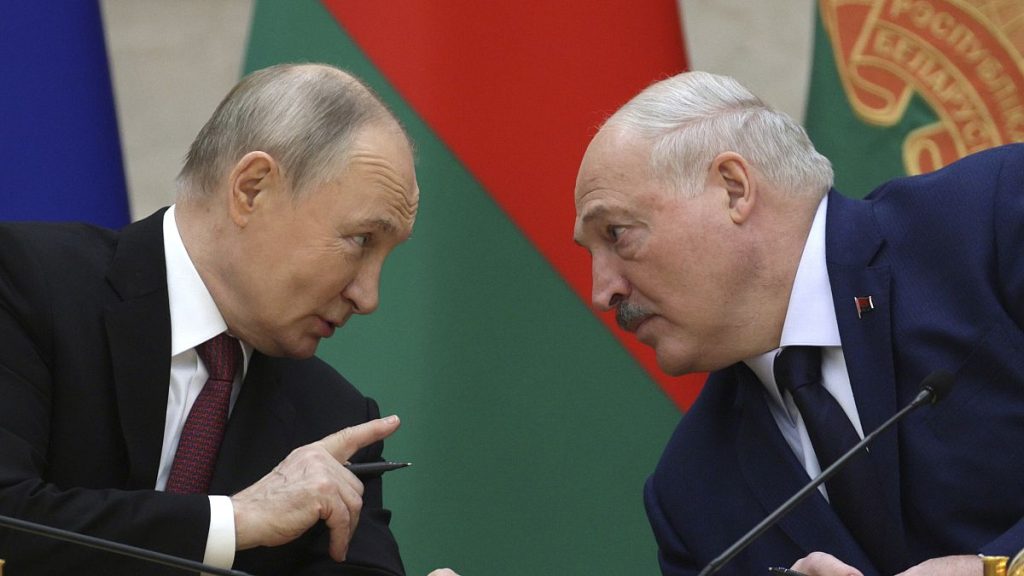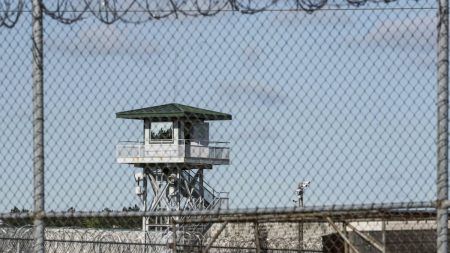The recent security treaty signed between Russia and Belarus, solidifies a burgeoning military alliance and marks a significant escalation in regional tensions, particularly in the context of the ongoing war in Ukraine. This agreement, signed during Russian President Vladimir Putin’s visit to Minsk, formalizes Russia’s commitment to Belarus’s security, including the potential deployment and use of Russian nuclear weapons on Belarusian soil. This development follows Russia’s revised nuclear doctrine, which explicitly places Belarus under Russia’s nuclear umbrella, a move widely seen as a response to escalating tensions with the West and a direct reaction to the United States’ provision of long-range missiles to Ukraine.
The treaty’s implications extend beyond mere symbolism. It represents a tangible shift in the regional security landscape, raising concerns about the potential for nuclear conflict and the further entanglement of Belarus in Russia’s geopolitical ambitions. The agreement effectively integrates Belarus’s defense posture with Russia’s, blurring the lines between the two nations’ military capabilities and potentially paving the way for deeper military cooperation. While Russia maintains control over the deployed nuclear weapons, the treaty signals a heightened state of readiness and a willingness to consider their use under certain circumstances.
The inclusion of tactical nuclear weapons in the security guarantees raises particular concerns. These weapons, designed for battlefield use, lower the threshold for nuclear conflict compared to strategic nuclear weapons. While Russia asserts its control over these weapons, the Belarusian Security Council’s statement that their use would require the Belarusian president’s sanction adds another layer of complexity to the situation. This suggests a degree of shared authority, even if ultimate control remains with Moscow, and raises questions about the potential for miscalculation or escalation in a crisis.
Beyond the nuclear dimension, the security treaty signifies a deepening political and military alignment between Russia and Belarus. Belarus, under President Alexander Lukashenko’s long-standing rule, has increasingly relied on Russian support, particularly since allowing Russian troops to use Belarusian territory for the invasion of Ukraine. This new agreement further cements this relationship, potentially limiting Belarus’s sovereignty and autonomy while solidifying its role as a key strategic partner for Russia in the region. The Belarusian opposition has condemned this move as a further erosion of Belarusian independence and a dangerous escalation of the conflict in the region.
The specific mention of the ‘Oreshnik’ intermediate-range ballistic missile further underscores the military dimension of this agreement. Lukashenko’s request for the deployment of these missiles, coupled with Putin’s positive response, signifies the potential for a significant increase in Belarus’s offensive capabilities. The ‘Oreshnik’, with its reported hypersonic speed and multiple warheads, represents a substantial upgrade to Belarus’s arsenal and could significantly alter the regional balance of power. Russia’s willingness to deploy these advanced weapons systems to Belarus strengthens the military alliance and underscores the growing integration of their defense strategies.
The timing of this agreement, against the backdrop of the ongoing war in Ukraine and heightened tensions between Russia and the West, raises significant concerns about the potential for further escalation and the widening of the conflict. The revised Russian nuclear doctrine, with its lowered threshold for nuclear weapon use, combined with the deployment of tactical nuclear weapons to Belarus, sends a clear message of resolve to the West and underscores the risks of further escalation. This development adds another layer of complexity to the already tense geopolitical landscape and underscores the urgent need for diplomatic efforts to de-escalate the situation and prevent further conflict. The international community is watching closely, as the ramifications of this security treaty are likely to be felt far beyond the borders of Russia and Belarus.










